Eight Points in Enlightening the Élite
[Note: This article was originally published in Get Real Philippines, and was first published by Orion Pérez Dumdum on April 26, 2003.]
* * *
This article is included in the www.correctphilippines.org site because people might be asking why this advocacy is being targeted mostly towards educated English-speaking Filipinos such as professionals, OFW’s, educators, teachers, academics, engineers, IT Professionals, community leaders, architects, scientists, writers, and more and not so much at the grassroots.
This article below clearly explains it: we simply cannot reach all Filipinos. There are too many local languages. Using Tagalog will not reach the grassroots in non-Tagalog regions, and English still happens to be the preferred language of technical or intellectual discourse in the entire country, especially among non-Tagalogs. It is for this same reason that José Rizal wrote his two masterpieces in Spanish in order to target the educated elites and leaders as his audience who would then “fan out” the ideas to the masses.
The same goes with how the CoRRECT™ Movement must target the movers and shakers and tap them to help spread the word among the rest of society. Ultimately, it is the elites who determine what happens to the society in which they belong. Lousy elites translate into a lousy society. Enlightened elites translate into a better-run society. Read more to understand the ideas behind our approach.
* * *
1. There are no and there never will be perfectly egalitarian societies. All societies will always have Élites.

Italian intellectual Vilfredo Pareto described how all societies always have élites
“Elites”, in this case does not necessarily refer only to the well-heeled, well-dressed, and perfumed socio-economic Élites. It refers also to the intellectual Élites or “intelligentsia”, political Élites, and other groups of people who wield some form of power or influence among other people. They can be student leaders, labor leaders, baranggay captains, parish priests, etc. They may not always be “rich” or materially well-off, but because other people look up to them, they are, by default, Élites.
2. Élites will always be the sourceof widespread change in society, good or bad.
The masses instinctively take their cues from the Élite or members of the Élite. In fact, historically, the leaders of mass movements have often been members of the Élite themselves.
3. A significant majority of the Élites of a given society must be enlightened and capable of critical reasoning for that Élite to espouse effective positive change in society.
If among the Élites, only a very small minority achieve a high level ofenlightenmentand ability to think things in a critically rational way, whilst the majority of the Élites are unenlightened or pseudo-enlightened, then the Élites will end up divided and will not be able to agree on proper policy. More importantly, the viewpoint of the truly enlightened Élites ends up muted (due to their limited numbers amidst a vast sea of ignorance) and their proposed course of action, neglected. Discussions, arguments, and debates on policy thus become a matter of sophistry (trying to “appear correct” through the use of rhetorical techniques) rather than genuinely weighing pros and cons and studying the feasibility of the stated options through logic and inquisitive reasoning.
Point number 2 talks about the fact that Élites are the key to widespread change in society, be it good or bad. Point number 3 states that the difference between good change and bad change for society is determined by the presence or absence of enlightenmentand rationalism among the majority of the Élites.
Enlightenment, more importantly, is all about the continuous search for a high-level of knowledge, a high-degree of common-sense intelligence, and the continuous use of logic and reason in order to tie common-sense and vast amounts of knowledge together in order to come up with a fairly accurate understanding of various relevant phenomena and formulate suitable courses of action in order to solve problems that may be perceived. It is not considered enlightenment if after achieving a high-level of knowledge in one or more fields, a person decides that he/she has reached the end point of knowledge and thus refuses to learn anything new and no longer considers it necessary to update his/her knowledge in the fields in which he/she has achieved a degree of expertise.
Enlightened people will always seek to provide well thought-out and highly informedopinions, rather than opinions that are purely based on sentiment, emotional attachment, or other flimsy or arbitrarily concocted reasons.
4. Bigger potential dangers are likely to arise from the pseudo-enlightened or “half-enlightened” Élites.
Such Élites think they are “enlightened”, but unfortunately, they aren’t. Examples of such people are religious fanatics, die-hard proponents of Communism, other forms of Marxism, and Extremist Nationalism, Nazism, among others — adherents to ideologies rather than common sense.
They are often of the impression that they are “enlightened” often because they believe that society needs to be improved, as most enlightened thinkers in the past had often advocated improved social and economic conditions for society. They are also likely to think of themselves as being “enlightened” if the point of view and/or course of action they advocate is unconventional, controversial, revolutionary, and not necessarily popular, due to the fact that historically, many important figures of the Enlightenment espoused unconventional, controversial, and unpopular views. Without them knowing it, they forget that while the views espoused by thinkers of the Enlightenment were often unconventional and/or unpopular, the real essence of the Enlightenment is in the use of independent reasoning coupled with the comprehensive collection of knowledge that is relevant to understanding and solving a variety of issues. Whether one espouses views which are unconventional, controversial, or unpopular, is not what truly matters. What matters is whether the views one espouses make sense and are grounded in reality.
But because Élites of society who are pseudo-enlightened have effectively deluded themselves to think that they are “enlightened”, they will think that “they already have all the answers”, and will often oppose the aims, views, and actions of the truly enlightened members of society. If the truly enlightened are too few in number, they will effectively be overwhelmed by the more numerous pseudo-enlightened ones.
Another example is the half-enlightened status of the Roman Catholic Church in the Philippines. Any policy presented that goes counter to any of the tenets of the Roman Catholic Church is always in danger of being anathemized by the “Philippine Inquisition.” The enlightened ones who bravely propose such measures often risk political alienation and social exclusion, which is tantamount to excommunication. In this case, a solution to a problem cannot be easily pursued because one unenlightened sector of the Élite has decided to block the moves of the enlightened sector.
Furthermore, we have another example: Joma Sison & Luis Jalandoni, for instance, are both members of the materially-endowed, landowning Élite. Indeed, while they are members of the Élite, and perhaps even the “intelligentsia”, that did not necessarily mean that they were truly enlightened. They are, unfortunately, prime examples of pseudo-enlightened members of the intelligentsia. On the other hand, many of their lieutenants in the communist movement are members of the “new Élite” who may have come from humble beginnings. Their lack of full enlightenment, largely a result of the Philippine school system’s lack of emphasis on critical reasoning, resulted in their unquestioning and extremist zeal in espousing an intolerant and absolutist ideology. Despite evidence that exposes the poor results that their ideology’s economic system has delivered in other countries that actually tried it, their lack of true enlightenment prevents them from critically analyzing this fundamental disconnect between their ideology’s utopian promise as expressed on paper, on the one hand, and its disappointing performance in real-life, on the other. Truly enlightened individuals must always remain cold, detached, and skeptical about ideologies and fanaticisms, and should rather prefer pragmatism and the constant analysis and verification of actual data through the use of proper logic and critical reasoning.
Had Joma Sison, Luis Jalandoni, and their lieutenants been truly enlightened (and therefore, truly rational), they would have abandoned their lost cause long ago, as soon as it was obvious that the ideology they espoused could not deliver the material progress and human development that it promised. A more enlightened example of a Communist leader, at least in the economic aspect, would be the late Deng Xiaoping, as it was he who decided to shift China from a centrally-planned economy to a market-driven and capitalistic one, after noting that centralized economic planning could never react fast enough to the challenges that famines and food shortages posed. China today, though nominally Communist, is fast becoming a capitalistic economic powerhouse, and the benefits that an improved capitalist economy can provide to the masses are substantially superior to the ones previously provided under a centrally-planned economic set-up. Following China’s example, officially “Communist” Vietnam has also gone on a 180 degree shift in economic policy towards market-oriented capitalism.
It is suprising that, while in the early 1900′s, such an ideology might have been an untested yet apparently promising one that is perhaps, worthy of experimentation, it is difficult to imagine why, despite the wealth of evidence of economic collapse that such an experimental ideology brought about to several formerly Communist countries, some Filipinos as late as the 1990′s, were still advocating a system that had already been exposed and proven to be a failure. Obviously, these people were just not enlightened enough to use their faculties of logical and critical reasoning. They were, perhaps, partially-enlightened to the point of realizing that society needed to be improved, but were not truly enlightened enough to logically and rationally verify whether the promises made by the ideology they had chanced upon made real sense in the real-world, given the findings and newer realities of the 1990′s and beyond.
Most pseudo-enlightened intellectuals often require that their followers take their information from the same source, interpret it in the same way, and believe in the same things. There is an element of imposing a common subjectivity on the whole group, just so that the entire group can be united and unanimous. Strict adherence to the “orthodox view” is necessary, lest a purge be done to rid the group of deviant “heretics.”
True rationalists and enlightened people, on the other hand, given the same amount of knowledge and evidence, are often likely to reach the same conclusion, even when working independently of each other. They may sometimes differ on a few specifics, usually because one party knows a little tidbit of information that the other doesn’t know yet, but once that bit of information reaches the other one, and he verifies it to be true, he then makes adjustments, and revises his view. The end result is that their conclusions end up the same or highly similar, despite having been independent of each other. Because of the adherence to true objectivity, there is no need to coerce each other to subscribe to the same view. The empirical evidence as processed through proper use of logic and reasoning often speaks for itself.
Pseudo-enlightened intellectuals and their followers can be somewhat described as subscribing to a form of Messianism, where they believe that the author of an ideology is a kind of Messiah and his ideology and writings, his “Holy Scriptures.” Far from merely taking the author’s “advice” with a grain of salt, pseudo-enlightened intellectuals and their followers unquestioningly swallow the author’s entire work as “Gospel Truth” and often refuse to acknowledge overwhelming real-world evidence that refutes the basic tenets of their ‘religion.’
5. Human history is full of case studies of Élite leadership in social change.
During the Age of Enlightenment in Western Europe, the masses (peasants/laborers) and the uneducated people were, in a way, just as ignorant as the masses (peasants/laborers) and the uneducated people of the Philippines are today. They were not enlightened as far as theories, science, etc, were concerned.
But what made Western Europe of the 1700′s and beyond different from the Philippines today is that, whereas in both cases, the masses were largely ignorant, in Europe, a large number of the Élites (nobles, intelligentsia, mercantile class, emerging bourgeoisie, etc) were busy reading up on Science, Voltaire, Montesquieu, Rousseau, etc, and beefing up on their practice of logic and rationalism, while in the Philippines today, only a small minority among the “Élite” are trulyenlightened and rationalist. There are, in fact, much more people among the Élite who are unenlightened and half-enlightened. The unenlightened ones are busy fitting spoilers on their daddies’ cars, going to bars/discos, partying, while the pseudo-enlightened ones chant repetitive mantras in street rallies, get indoctrinated in extremist cadres, and some even join armed movements. These are all members of the Élite, yet they are not enlightened. (Yes, even student leaders in leftist groups are members of the Élite. They are relatively better off than the rest of the masses. Labor & Union leaders are Élites because of the influence they wield.)
Western Europe of the 1700′s was becoming “considerably enlightened,” despite the numerous members of the masses who were ignorant, because “Enlightenment” merely suggested that at least a majority of the Élite be enlightened.
Therefore, Enlightenment may not necessarily require mass enlightenment, but may just mean that at the least, a significant majority of the Élites be enlightened.
A quick look at PinoyExchange.com (PEx) or a few other Philippine discussion forums on the internet reveals the problem — and let’s not deny it; PEx and the other Filipino forums represents members of the Philippine Élite; people who can afford computers and internet time; people who were blessed enough to go to “decent-enough” schools and thus find work in companies that were modern and fiscally healthy enough to provide them with internet access.
Yet the quality of logical ability and critical thinking found there is dismal. While there are a few highly intelligent and rational members who post logically presented insightful messages, there is often a larger number of members who are often unable to appreciate the insights posted, usually because on the surface, they have a knee-jerk reaction to some of the insights. Often, they disagree without even properly reading through or digesting the data that is presented by the member they disagree with. And rather than aiming to understand things fully and get to the “bottom of things” in a logical and rational way, using sophistry and the quest to “appear correct” is how these members use “logic.”
A large number of people care more about people’s credentials rather than the logical merits of a case. People resort to various forms of argumenta ad hominem in order to retort or refute logically-presented arguments. They’d resort to fervent beliefs in ideology or religion, rather than properly thinking things through in a critical fashion to get their answers and justify their stand on certain causes. The usual result is that these people say “It is correct because I say so! I say so, because I have a PhD in this-and-that…” as opposed to saying “Based on the evidence presented and the analysis that went into it, these are my findings…”
Until the vast majority of the Philippine Élite are capable of discussing issues rationally in a calm, cold, detached, critically objective, and scientific manner, as opposed to discussions based on fervently-held fanatical beliefs and religio-ideological convictions, the Élite will be considered far from being enlightened. If the majority of the Élite is far from being enlightened, then the future of the society it heads cannot be said to be headed in a positive direction.
6. Whereas it is next to impossible, given the enormity of the task, to effectively enlighten the masses, it should at least be possible to Enlighten the Élites.
Resources are scarce, not over-abundant. While it would be ideal to educate and enlighten the masses, we know that given the dearth of resources and the fact that extremely good (enlightened & rationalist) teachers are not easy to come by, the first step should be to first concentrate the effort of enlightenment and teaching the values of Rationalism on the relatively small Élite sector of society that has the power and influence to fan out this enlightenment to the rest of society.
Enlighten the Élites first, then once a majority of the Élites are enlightened, the policies these enlightened Élites will pursue within society will likewise be enlightened. When the policies the Élites pursue are “enlightened”, they will naturally seek to enlighten the Masses and seek to uplift them. Put another way, if you enlighten all the Élites then these Élites, being enlightened, will seek to enlighten the masses. From there, we must realize that not all of the masses will be enlightened…
However, there will be among the children of the masses, people who are ideal candidates for enlightenment. These are children of the masses who are identified to be more intelligent, more achievement-oriented, more driven, and clearly more influential, than their peers. These new entrants to the enlightened Élite will further swell the ranks of the enlightened Élite and will work more towards the further upliftment of the rest of society, especially the masses. A highly infinitessimal enlightened Élite will definitely not have the manpower available to painstakingly educate and enlighten the masses. Worse, the pseudo-enlightened Élites will seek to negate the effort expended by the enlightened Élites.
If only the Élites could all (or at least majority) be truly and “fully” enlightened, then at least these Élites can be united in the quest to educate and enlighten the masses. Thus, this spells the importance of first enlightening all (or at least most) members of the Élite.
7. The Enlightenment of the Élites must be thorough and not half-baked.
This is a corollary to point number 4, since as mentioned, the worst enemies of the enlightened Élite are not the unenlightened Élite nor even the unenlightened masses, but rather, the pseudo-enlightened (or half-enlightened) sector of the Élite. Being Élites, they too will have some measure of power and influence. Being partially-enlightened, they’ll think they know the answers on what needs to be done. Being partially-unenlightened, they’ll pursue the wrong aims, use the wrong means, and cause more damage instead of fixing things.
When the level of enlightenment among the Élites is uneven, and a huge sector is only partially enlightened, you end up with a divided Élite. Partial enlightenment often leads people to seek answers from ideologies rather than through critical rationalism. When this happens, those who flirt with ideologies will end up becoming pseudo-enlightened. This poses as a huge problem since it would certainly cause the dangers described in point number 4.
To reiterate what was mentioned in point number 3, having a divided Élite where the enlightened Élites form a small minority and the rest of the unenlightened and pseudo-enlightened Élite is factionalized into so many splinter-groups that are antagonistic to one another presents more problems than having a “rich-poor” or “Élite-masses” divide. A divided and highly factionalized Élite will constantly squabble amongst themselves and will, in the long run, spell out a directionless society that is in a constant state of “virtual civil war.” This was partly the situation in former President Corazon Aquino’s “rainbow coalition” in which various mutually-antagonistic pseudo-enlightened factions of the Élite (yes, even the leaders of the Left are part of the Élite) were all brought together into one government. The result was the lack of direction, stagnation, and hence, the lack of progress.
Whereas in point number 6, it is possible for members of the masses to become new entrants into the intellectual Élite, in the Philippines, a number of them were not truly enlightened. Instead, they took shortcuts to become pseudo-enlightened members of the intelligentsia, and committed themselves to influential & somewhat “convincing” pseudo-enlightened members of the material Élite who espoused extremist ideals and became demagogues. As opposed to the thoroughly rational and scientific method of continuously gaining new knowledge, scrutinizing such knowledge, and using precise sequential logic to derive conclusions and/or courses of action, their preferred short-cut was to base their thinking on the ideologies of authors who came before them. If, for example, Karl Marx thought he had all the answers to social problems, wrote in an apparently “authoritative manner” on it, and his teachings gave an emotional “feel-good” high to its readers, these readers decided to take it as the absolute Truth and decided to commit themselves to it as if it were a religion. None of them thought of using their faculties of critical reasoning in order to rationally verify whether the ideas actually made any true practical sense in the real world. (See Point Number 4, referring to Joma Sison / Luis Jalandoni)
It is sad that highly intelligent people can sometimes be unenlightened or pseudo-enlightened. As mentioned, the biggest danger comes from intelligent people who are pseudo-enlightened. Thus, there is a real need to ensure that half-baked and pseudo-enlightened intellectuals are not bred by society. Always remember that Nazism, Religious Fundamentalism, Communism, and other extremist movements were often authored and implemented by brilliant but half-baked and pseudo-enlightenedintellectuals.
8. Entry to the Élite must not be closed to aspirants.
Upward mobility and accepting qualified entrants into the Élite is of utmost importance. In many developed societies, many members of the “Élite” did not necessarily descend from members of a hereditary Élite. Many had humble parental origins. The key, in improving society, is in allowing the Élite group to expand and continually grow. The development of society, particularly the history of the First World, is founded on allowing the Élite group to grow and expand by creating opportunities for members of the masses to improve themselves and become new members of the Élite. The expansion and creation of a strong and large middle class is precisely what this is all about. Without this, the ideals of true representative Democracy will never come into fruition in the Philippines.
* * *
About the Author
 Orion Pérez Dumdum comes from an IT background and analyzes systems the way they should be: logically and objectively.
Orion Pérez Dumdum comes from an IT background and analyzes systems the way they should be: logically and objectively.
Being an Overseas Filipino Worker himself, he has seen firsthand how the dearth of investment – both local and foreign – is the cause of the high unemployment and underemployment that exists in the Philippines as well as the low salaries earned by people who do have jobs.Being Cebuano (half-Cebuano, half-Tagalog), and having lived in Cebu, he is a staunch supporter of Federalism.
Having lived in progressive countries which use parliamentary systems, Orion has seen first hand the difference in the quality of discussions and debates of both systems, finding that while discussions in the Philippines are mostly filled with polemical sophistry often focused on trivial and petty concerns, discussions and debates in the Parliamentary-based countries he’s lived in have often focused on the most practical and most important points.
Orion first achieved fame as one of the most remembered and most impressive among the winners of the popular RPN-9 Quiz Show “Battle of the Brains”, and got a piece he wrote – “The Parable of the Mountain Bike” – featured in Bob Ong’s first bestselling compilation of essays “Bakit Baligtad Magbasa ng Libro ang mga Pilipino?” He is the principal co-founder of the CoRRECT™ Movement to spearhead the campaign to inform the Filipino Public about the urgent need for Constitutional Reform & Rectification for Economic Competitiveness & Transformation.

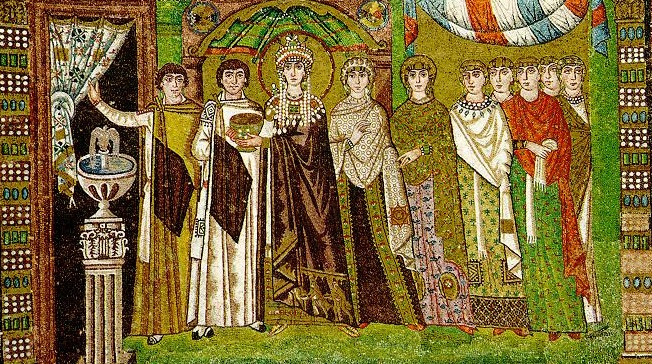


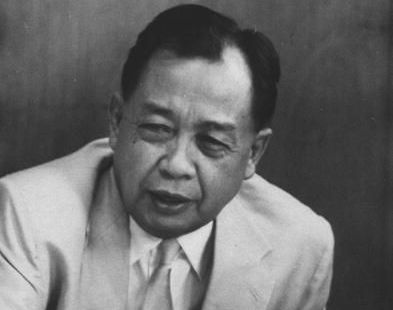
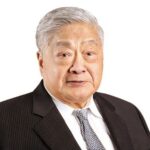



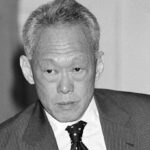
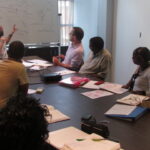


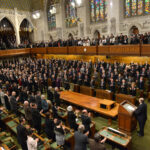
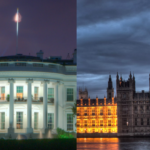

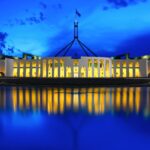




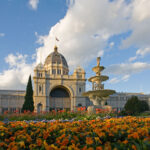


2 Responses
[…] 4. Eight Points in Enlightening the Élite […]
[…] 4. Eight Points in Enlightening the Élite […]